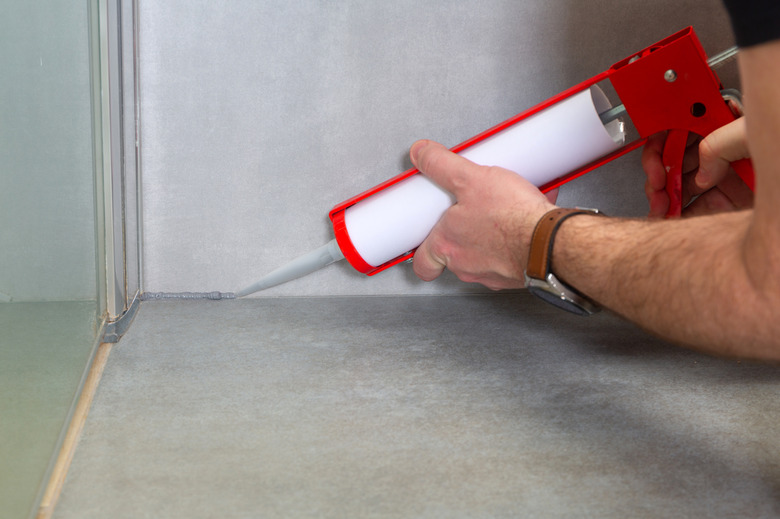Polyurethane Vs. Silicone
We may receive a commission on purchases made from links.
People throw around the words polyurethane and silicone interchangeably since they're both sealants used in the same way and generally applied with caulking guns. While you could use the two in similar applications, there are particular jobs that each does better than the other.
The Skinny on These Sealants
The Skinny on These Sealants
If you're doing cosmetic caulking along baseboards and trim, you can apply either polyurethane or silicone. In that case, polyurethane tends to be the budget-friendly way to go, and it's also a naturally occurring product — an organic compound. Silicone, however, is an inorganic polymer that feels and acts similar to rubber. Silicone is also more expensive, but it has more important performance considerations because it's the go-to product for use outdoors or for any moisture- or plumbing-related purposes.
In most instances, it's silicone you'll want to use, but there are two specific reasons to use polyurethane. For one, it can be painted. If you want a discreet gap-sealing product for room-finishing or other reasons, polyurethane can be painted once you've allowed it to cure. Paint will not adhere to silicone.
Also, polyurethane will stick to wood, whereas silicone cannot. So indoors when you're doing detail work on wood or in spots where water damage isn't a concern and where you might like to paint over it, polyurethane is the sealant of choice for you. But whether it's silicone or polyurethane you use, it'll need to stay dry until it cures, which is long after it appears to be dry.
Silicone: The Need-to-Know
Silicone: The Need-to-Know
Silicone expands and contracts as temperatures demand. This is what makes it last twice as long or longer than polyurethane — as long as 20 years in outdoor use. Its engineering also protects it from UV damage, which is why silicone makes a good outdoor caulking for use in things like masonry and around nonwood windows or doors.
Silicone is less pleasant to work with, though, thanks to having more fumes and odors. It's advised you work with a respirator mask indoors. Outdoors, if you experience cold temperatures, silicone is the wiser choice.
Other Options for Sealants
Other Options for Sealants
If decision-making isn't your strong suit, the bad news is, there are other sealants out there, and they're arguably a better choice. Silicone reigned as champ for a long, long time when it came to protecting homes, but today's experts recommend comparison shopping for tougher products. Other modern sealant types include hybrid and solvent-based caulks, which are wise for hardcore jobs, like installing roof gutters in particular.
Acrylic latex sealant is another popular product today, and it's also easily paintable and affordable. So while your parents were limited to the world of silicone and polyurethane, you're not. If you're unsure about which product is best for you, talk to the staff at your local home center.
